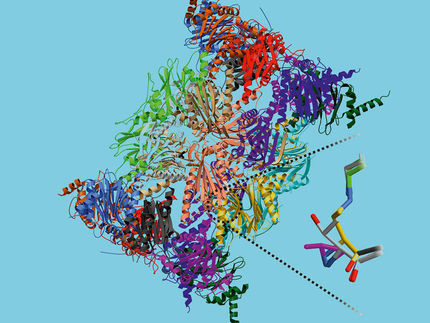Cooperation in diabetes research
Max Planck Institute of Biochemistry and GlaxoSmithKline in collaboration on type II diabetes
The Max Planck Institute (MPI) of biochemistry in Martinsried and pharmaceutical company GlaxoSmithKline GmbH & Co. KG (GSK) have signed a research agreement on the development of new drugs for the treatment of type II diabetes. The cooperation agreement, negotiated with the help of technology transfer organisation Max Planck Innovation, is worth several million euros and covers a three-year period.
The recently signed cooperation agreement between the MPI of Biochemistry and GSK pursues the objective of developing innovative new drugs. The joint research and development work is based on the research findings of Axel Ullrich, Director at the MPI of Biochemistry. He and fellow scientist Mathias Bäcker successfully described the role of certain protein molecules - known as kinases - in connection with the development of type II diabetes, a disease in which insulin resistance gives rise to a raised blood sugar level. These kinases make up a group of important signal molecules in the body, which can, under certain circumstances, be involved in the development or manifestation of the disease. In the collaborative project with GSK, the scientists are looking for new substances that can inhibit this kinase activity and control it in a targeted manner.
Axel Ullrich already achieved a milestone in the treatment of diabetes back in 1977, together with fellow scientists at the University of California. At that time, he developed a method of transferring a copy of the human insulin gene into bacteria. This facilitated the industrial manufacture of human insulin for the very first time and has since made it easier for millions of diabetics to live with the disease, as they no longer have to depend on animal insulin, which is not nearly so well tolerated by the human body.
Axel Ullrich’s current research is set to contribute to the successful treatment of diabetes a second time. "Developing innovative drugs to treat diabetes gives us the opportunity to directly influence defects in the molecular signal paths, which lie at the root of diabetes. That enables us to fight the actual causes of diabetes," says Ullrich. Peter Gruss, President of the Max Planck Society expressed his delight with the collaboration agreement: "GlaxoSmithKline is one of the world's five major pharmaceutical companies. The collaboration agreement with GSK testifies to the fact that Max Planck Institutes, due to their leading edge in basic research, are also sought-after partners in industry. Max Planck researchers generate ideas for new approaches in application-oriented industrial research. We hope that together with a strong partner, we will be able to translate research findings into therapies which will enhance patient quality of life."
Prof Ullrich’s longstanding expertise in molecular biology research is again being put to good use, having already resulted in some very successful therapeutic agents. For example, Herceptin®, a drug he developed, is successfully used to treat metastasised breast cancer. The drug Sutent®, which treats malignant tumours in the gastrointestinal tract (GIST) and renal cancer (MRCC) is also based on Ullrich’s research work. In the case of both of the above drugs, the suppression of certain kinase activity with suitable inhibitors is central to the treatment.
Most read news
Topics
Organizations
Other news from the department science

Get the life science industry in your inbox
By submitting this form you agree that LUMITOS AG will send you the newsletter(s) selected above by email. Your data will not be passed on to third parties. Your data will be stored and processed in accordance with our data protection regulations. LUMITOS may contact you by email for the purpose of advertising or market and opinion surveys. You can revoke your consent at any time without giving reasons to LUMITOS AG, Ernst-Augustin-Str. 2, 12489 Berlin, Germany or by e-mail at revoke@lumitos.com with effect for the future. In addition, each email contains a link to unsubscribe from the corresponding newsletter.

















































